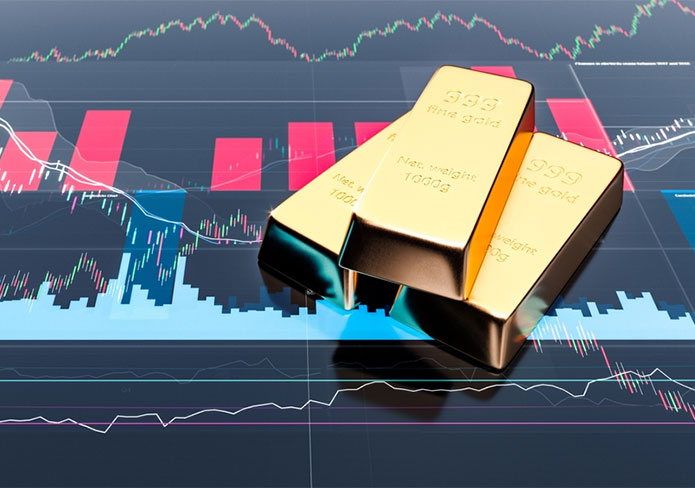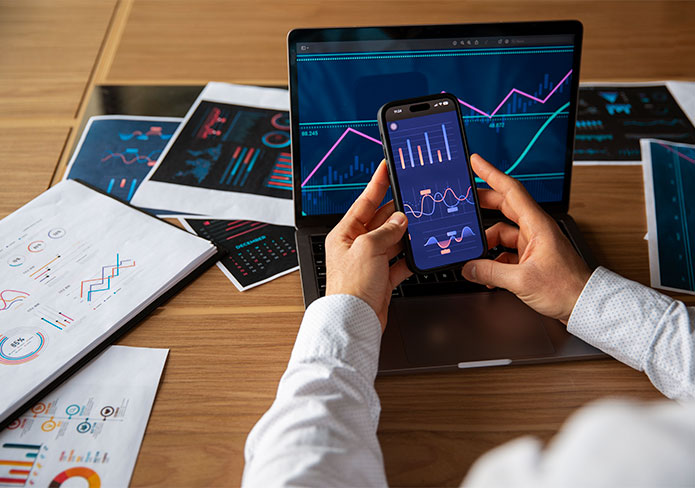

If you've just dipped your toes into the world of derivatives, you probably know they come with a level of risk. As the famous investor Warren Buffet wisely puts it, "Risk comes from not knowing what you're doing." If you're a trader who truly comprehends derivative instruments and the ideas behind them, you have the potential to earn substantial profits through derivative trading.
It might seem a bit strange that something can have two different prices simultaneously, but in the world of commodities trading, this duality is quite common. Every commodity, including essential natural or agricultural products in their raw state like gold, oil, wheat, or beef, has two distinct ways of determining its value: the spot price and the futures price.
Both the spot price and the futures price represent the agreed-upon cost of the commodity in a purchase contract, involving both the buyer and the seller. What sets them apart is the timing of the transaction and the delivery date of the commodity. The spot price relates to a deal that's about to be executed immediately, while the futures price pertains to a deal set to take place in the future, often several months down the line.
In this article, we'll dive into what these terms mean, explore their advantages, and help traders decide which type suits them best.
Commodity Spot Price
The spot price of a commodity is essentially the current price you would pay if you wanted to purchase that commodity right now, with immediate payment and delivery. When we talk about commodity spot contracts, it means you have to pay and receive the commodity right away—there's no delay. This immediate transaction is why it's called the "spot price."
In a broader sense, the commodity's spot price reflects its current market value. Traders and investors monitor this spot price just like they keep an eye on stock prices. So, when you hear someone say, "Gold is currently trading at $1,900 per ounce," they are most likely referring to the spot price of gold.
Commodity Future Price
The futures price refers to a transaction involving a commodity that's scheduled to occur at a later date – quite literally, in the future. When someone buys a commodity futures contract, they are essentially locking in a price for a delivery that will happen down the road.
The price of a commodity's futures contract is determined by taking its current spot price and adding the cost of carrying the commodity during the time leading up to the delivery. This cost of carry encompasses various expenses, including storage, interest, and insurance.
Understanding the Basis in Commodity Trading
The distinction between spot and futures prices arises because financial markets are forward-looking and adapt their expectations accordingly.
Now, let's talk about "basis." Basis is essentially the difference between the current spot price of a commodity that can be delivered and the price of the futures contract set for the earliest possible delivery date.
It's important to note that "local" is a key factor here, as futures prices serve as a global benchmark for commodity prices, but the basis can vary significantly from one region to another. This variation primarily hinges on the costs associated with transporting the commodity to its delivery point. You can calculate the basis by subtracting the price of the nearby futures contract from the local cash market price.
Spot Prices as the Driving Force Behind Futures Prices
The relationship between spot prices and futures prices is an intriguing one, but it's essential to recognize that it's primarily spot prices that exert influence over futures prices.
Typically, the price of a futures contract begins with the spot price of a commodity as its initial reference point.
However, futures prices are not solely anchored to the spot price. They also encapsulate expectations of shifts in supply and demand, the risk-free rate of return for the commodity holder, and the expenses associated with storing and transporting the underlying asset (particularly relevant for commodities) until the futures contract reaches maturity and the transaction is executed.
In essence, while the spot price sets the stage, it's these additional factors that shape the ultimate value of futures contracts.
Choosing the Right Trading Strategy: Spot vs. Futures
When it comes to trading commodities, whether you're a seasoned investor or just starting, one of the key decisions you'll face is choosing the right trading strategy. Two primary approaches are trading based on commodity spot prices and trading based on commodity futures prices. Each strategy has its advantages and disadvantages, and the choice depends on your financial goals, risk tolerance, and market outlook.
Spot Trading: The Immediate Gratification
Liquidity and Flexibility: Spot markets are highly liquid, making it easy to enter and exit positions. If you need commodities for immediate use or simply want to capitalize on short-term price movements, spot trading might be your go-to choice.
Risk Profile: Spot trading is generally less complex and can be less risky than futures trading. Prices are determined by current supply and demand dynamics, making it easier to assess price trends and make informed decisions.
Immediate Profit or Loss: With spot trading, your profit or loss is realized immediately upon the transaction. This can be appealing if you prefer to see the results of your trades right away.
Futures Trading: Managing Risk and Long-Term Planning
Risk Management: Futures contracts are often used for hedging purposes. If you're a producer or consumer of commodities, futures allow you to lock in prices for future deliveries, protecting yourself against adverse price movements.
Investment Diversification: Futures can be an integral part of a diversified investment portfolio. They can serve as a hedge against inflation and provide exposure to the commodities market without the need for physical ownership.
Long-Term View: If you have a longer investment horizon and believe in the fundamentals of a particular commodity, futures can be a valuable tool for building a position over time.
Leverage: Futures contracts typically involve leverage, meaning you can control a larger position with a relatively small amount of capital.
The choice between spot trading and futures trading ultimately depends on your financial objectives, risk tolerance, and time horizon. It's a decision that shouldn't be taken lightly, as it can significantly impact your investment outcomes.
Empowering Your Commodity Trading Journey with Orient Finance!
At Orient Finance, we understand the importance of having the right resources and support to make informed decisions in the world of commodities trading. Whether you're interested in spot trading for immediate gains or futures trading for long-term planning and risk management, our online trading platform in the UAE is designed to cater to your needs.
Here's how Orient Finance can assist you, no matter which path you choose:
Comprehensive Research: Our platform provides access to a wealth of research and market analysis tools. Stay informed about current supply and demand dynamics, historical price trends, and expert insights to guide your trading decisions.
User-Friendly Interface: Whether you're a seasoned trader or just starting, our user-friendly online trading platform ensures a smooth and intuitive experience. You'll have access to real-time market data, customizable charts, and order execution tools to help you trade with confidence.
Customer Support: Our team of professionals is available to assist you with any questions or concerns you may have. We are here to offer guidance and address any trading-related inquiries you might have, ensuring a personalized and helpful experience for you.
Security: We prioritize the security of your investments. Our platform employs robust security measures to safeguard your data and assets, ensuring a safe and reliable trading environment.
Educational Resources: Whether you're a beginner or an experienced trader, continuous learning is essential. Orient Finance offers educational materials, webinars, and tutorials to help you improve your trading skills and stay up-to-date with market developments.
When it comes to choosing your commodity trading strategy, you don't have to navigate the journey alone. Orient Finance is your partner, dedicated to providing the tools, resources, and support you need to make informed decisions, manage risk effectively, and pursue your financial objectives, no matter which path you choose.
Explore our online trading platform today and take the first step toward achieving your trading goals with confidence. Your success in the commodities market is our priority.









